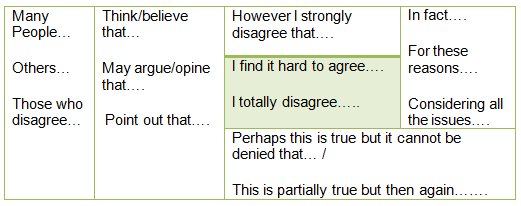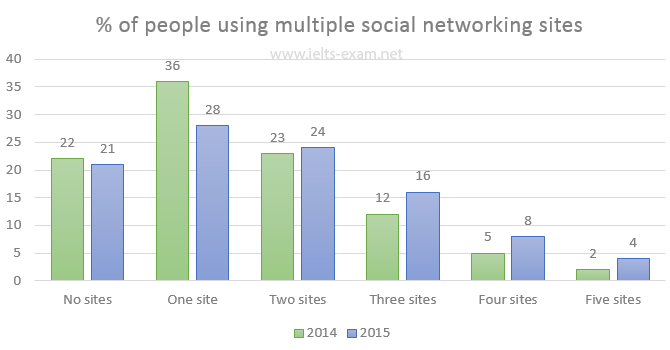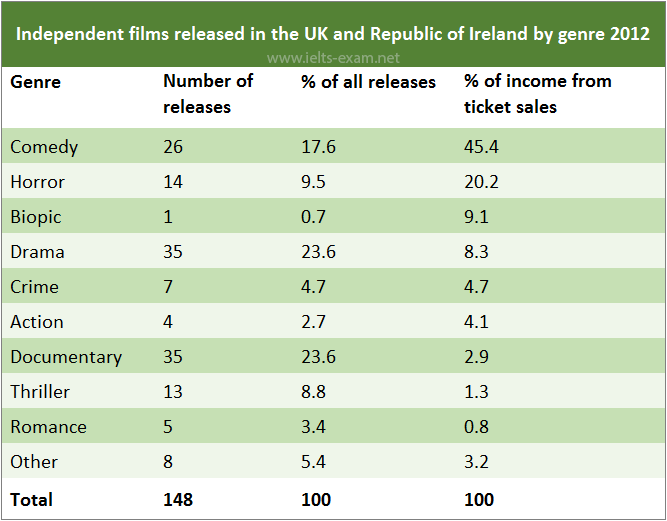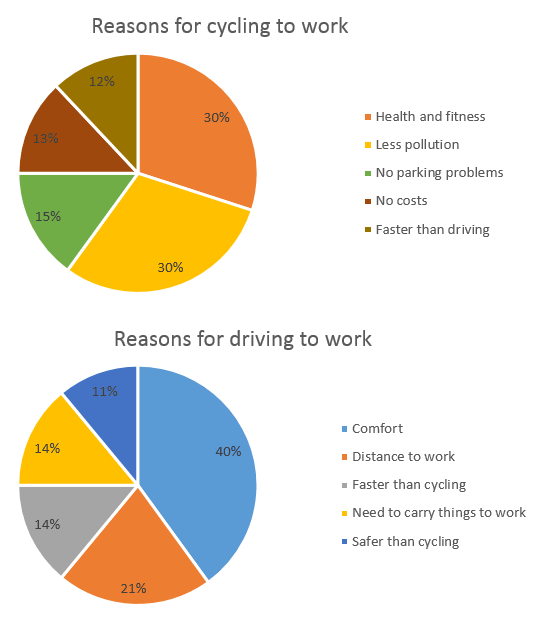Vocabulary for Academic IELTS Writing Task 2
IELTS Writing Task 2 (IELTS Essay Writing) requires a candidate to use a wide range of vocabulary. Connective words and phrases are very important to finish the writing task 2 in a logical and coherent way. You must use the transitional or connective words in your writing task 2 as it is considered one of the important factors for a high band score. The essay writing for IELTS requires you to present convincing arguments, reasoning, examples, and point of view. To make your essay impressive and to show pieces of evidence or examples in a coherent and logical way, you have to use these connective words. However, do not overuse the linking phrases or connective phrases just to show that you know so many of them. Use those connective phrases/words or linking phrases/words properly.
The general format for writing academic writing task 2/ IELTS Essay is as follows:
Introduction + your opinion/ your thinking/ your point of view/ whether you agree or disagree/ main advantages or disadvantages +
2nd paragraph with an example, explanation, evidence and extra details +
3rd paragraph with an example, explanation, evidence and extra details +
4th paragraph with an example, explanation, evidence and extra details +
.................
.................
.................
Conclusion + restating the main point of your discussion/ your position on the issue.
Vocabulary for the Introduction Part:
In the introduction part of your IELTS essay, you should write sentences relevant to the topic given and generally accepted ideas about it. Use your best English here as it will attract or bore your reader about the whole writing. You will make or break your impression in this paragraph. Be very cautious about the introduction part. Never just copy the sentence of the question. If you really need to, use synonyms and different sentence structure.
In the introduction part of your IELTS essay, you should write sentences relevant to the topic given and generally accepted ideas about it. Use your best English here as it will attract or bore your reader about the whole writing. You will make or break your impression in this paragraph. Be very cautious about the introduction part. Never just copy the sentence of the question. If you really need to, use synonyms and different sentence structure.
Examples:
1) Mobile phones and the Internet are two great innovations of science for communication and have been facilitating people for a long time. These two technologies are widely used in almost all the countries of the world and had become a part of our daily lives. We can't deny the usefulness of these technologies as they had made our life easier than it was ever before. In my opinion, the advantages of these two devices far outweigh the demerits they have.
1) Mobile phones and the Internet are two great innovations of science for communication and have been facilitating people for a long time. These two technologies are widely used in almost all the countries of the world and had become a part of our daily lives. We can't deny the usefulness of these technologies as they had made our life easier than it was ever before. In my opinion, the advantages of these two devices far outweigh the demerits they have.
2) Every human being with an ambition of getting higher knowledge requires attending colleges or universities. The main reason for attending universities or colleges may differ man to man. Someone may aspire to achieve greater knowledge, someone may just want to earn a certificate or someone might attribute it as a step towards career development.
3) Compared with people in the past, we concern far less on the preparation of food today, thanks to the development of agriculture and scientific technology. A fair amount of beneficial influence is occurring to us consequently.
Useful vocabulary/phrases to open/start the essay:
Many/some people claim/opine/believe that...
There is no denying that...
It is often said that...
These days.../ Nowadays.../ In this day and age...
It goes without saying that...
It is universally accepted that...
We live in an age when many of us are...
People are divided in their opinion regarding...
.... is one of the most important issues...
Whether .... or .... is a controversial issue...
Useful vocabulary/phrases to end the Introduction part:
Let us examine both views before reaching a concrete decision.
The following paragraphs discuss whether ...... or ...... and reach a reasonable conclusion.
The following essay takes a look at both sides of the argument.
My two cents go for...
However, I strongly believe that...
I oppose the view and my reasons will be explained in the following paragraphs.
I will support this view with arguments in the following paragraphs.
I personally believe that...
Thus the advantages far outweigh the disadvantages...
I wholeheartedly believe that this trend should be changed.
Vocabulary for the opinion part:
According to the essay types (Learn what are the IELTS essay types) use one of the following connective words/ linking phrases to write down your opinion However remember that if the question does not ask you to give your opinion but to compare advantages and disadvantages, then you should not strongly express your opinion. Opinion should only be written for opinion essays.
According to the essay types (Learn what are the IELTS essay types) use one of the following connective words/ linking phrases to write down your opinion However remember that if the question does not ask you to give your opinion but to compare advantages and disadvantages, then you should not strongly express your opinion. Opinion should only be written for opinion essays.
In my opinion...
I strongly opine that...
I strongly agree with the idea that...
I strongly disagree with the given topic...
I think...
My opinion is that...
Personally speaking...
In my view...
I believe...
Apparently...
Personally speaking...
According to me...
From my point of view... (Not 'In my point of view')
As far as I am concerned...
From my perspective...
I realise...
To my way of thinking...
It seems to me that...
To me...
To my mind...
My own view on the matter is...
It appears that...
I feel that...
I understand...
I suppose...
Examples:
1) But in my opinion, giving access to a mobile phone & the internet to each and every unemployed person is a matter of great dispute. I believe, this idea can help the countries who have sufficient funds for the whole fiscal year and already adopted technologies like the internet for a very long period. But this might turn out a complete loss for an undeveloped country.
1) But in my opinion, giving access to a mobile phone & the internet to each and every unemployed person is a matter of great dispute. I believe, this idea can help the countries who have sufficient funds for the whole fiscal year and already adopted technologies like the internet for a very long period. But this might turn out a complete loss for an undeveloped country.
2) I believe parents are always teaching us in many ways intentionally and unintentionally; however, the contributions teachers have in our learning process cannot be ignored.
3) I strongly agree with the idea that the gender issue is only a determinant in the battle of the sexes, not the battles among nations and peoples. It is therefore impertinent, if not irrational, to conclude that world conflicts result from the rule of a particular gender and the finer sex would do a better job at prevailing peace if selectively put at the helm of human nations.
Vocabulary for the 2nd paragraph Part:
It is true that...
First...
First of all...
Firstly...
First and foremost...
Initially...
To begin with...
To start with...
Let us take a look at...
It is worth considering...
In the first place...
Though it is true that...
Some people believe that...
Many people think that...
According to many...
Some people believe that...
Many support the view that...
On the one hand...
Examples:
1) It is true that an unemployed educated person with a mobile phone and the internet connection can get more access to the local and foreign job sectors and can use these technologies to get a job or become self-employed.
1) It is true that an unemployed educated person with a mobile phone and the internet connection can get more access to the local and foreign job sectors and can use these technologies to get a job or become self-employed.
2) First of all, the maximum number of cars are owned by the rich people and fuel price would not restrain them from using the cars. The price of fuel, in fact, increased significantly over the past 12 years and that has done nothing to reduce car usage.
3) To begin, houses that are being constructed by those in the lower income groups do look at the most cost-effective option. In this process, they invariably explore cheaper options that include a compromise on material and construction quality.
Vocabulary for the 3rd, 4th ...... paragraph Part:
Second(ly)... (Not 'Second of all')
Third(ly)...
Then...
Next...
After that...
And...
Again...
Also...
Besides...
Likewise...
In addition...
Consequently...
What’s more...
Furthermore...
Moreover...
Other people think that...
Other people believe that...
On the other hand...
Apart from that...
Finally...
Last but not (the) least...
Examples:
1) Besides, unemployed persons living in urban areas; can easily get the information related to the job-offering companies with these technologies................ Furthermore, the use of these technologies give them advantages than others.......
1) Besides, unemployed persons living in urban areas; can easily get the information related to the job-offering companies with these technologies................ Furthermore, the use of these technologies give them advantages than others.......
2) Besides, people would learn more about outer space as the experiment and scientific research in outer space is going on more steadily than ever.
3) Apart from that, computers would become more powerful and they will have superior artificial intelligence. We will have robots to do hazardous works like mining and outer space research. Surprisingly, e-commerce would be in more convenient form and most of the people will purchase online rather than going to shops in person.
Vocabulary to show the comparison:
In the same way...
Likewise...
Similarly...
Like the previous point...
Similar to...
Also...
At the same time...
Just as...
Examples:
1) Similarly, all the companies and offices are becoming automated and using computers, the internet and other technologies vastly than any other time in history.......
1) Similarly, all the companies and offices are becoming automated and using computers, the internet and other technologies vastly than any other time in history.......
2) At the same time software could be used for many purposes such as learning through computers, accounting in computers, drawing, storage of information, sending information from one person to other persons etc.
3) Also reading books is like peeking into the minds of the greatest people - A book is like a conversation with the writer and reading many books gives us an insight into the thinking process of different writers.
Vocabulary to show contrast:
On the other hand...
On the contrary...
However...
Nevertheless.../ Nonetheless...
But...
Nonetheless/ Nevertheless...
Oppositely...
Alternatively...
Unlike...
While...
Whilst...
Although...
Though...
Even though...
Despite... / In spite of...
In spite of the fact that...
Alternatively...
In contrast to this...
Then again...
On the other hand...
Despite the fact that...
Even so...
Yet...
Meanwhile...
Examples:
1) On the contrary, poor countries suffer from the lack of sufficient budgets to ensure some very basic needs of people like health, education, medicines etc. Then again, those countries don't have a chance to spend a lot of money to initiate a superficial project........
1) On the contrary, poor countries suffer from the lack of sufficient budgets to ensure some very basic needs of people like health, education, medicines etc. Then again, those countries don't have a chance to spend a lot of money to initiate a superficial project........
2) Unlike a TV, a radio cannot display an image or a video, and the communication is limited to voice only. Typically, a radio is used for access information such as news and live traffic updates.........
3) In contrast to this, the consumption of fuels to run the car is contributing to the rise if global warming and affecting the ozone layer. So, using bicycles in cities would be a better alternative.........
Vocabulary to show an example:
As an example...
For instance...
For example...
Like...
As...
Among others...
Such as...
Particularly...
Regarding...
In particular...
Namely...
With respect to...
As far .... is concerned...
To show an example...
To give an example...
To cite an example...
As an evidence...
To illustrate...
To paraphrase...
An example is...
...could be a good/ideal example here
A case...
When it comes to...
Examples:
1) For instance, there is no guaranty that all unemployed person will use technology positively........
1) For instance, there is no guaranty that all unemployed person will use technology positively........
2) As an example, many governments of the first world countries have initiated other projects like:.........
3) For example, if a public bus gets busted in the middle of a road, the passenger can easily leave it a look for another one.
Always use a comma (,) after 'For example', 'for instance' etc.
Vocabulary to present an idea:
Research shows that...
Research has found that...
When it comes to...
With respect to...
Not only... but also...
In terms of...
Examples:
1) Research shows that employment opportunity and crime ratio in a city has a deep underlying relationship and that is why...
2) When it comes to deciding who should be responsible to teach children the discipline...
3) With respect to mix-school classrooms, it is quite evident that...
2) When it comes to deciding who should be responsible to teach children the discipline...
3) With respect to mix-school classrooms, it is quite evident that...
Phrases to introduce more ideas/ examples:
Furthermore...
In addition...
On top of that...
Besides...
What is more...
Another point worth noting is...
Another factor to consider is...
Furthermore...
Not only .... but also...
Also...
Examples:
1) On top of that, rich countries emit more CO2 than the rest of the world does and this is why they have greater responsibilities.
2) Another point worth noting is the number of TV channels we have these days.
3) What is more, leaders are born not made.
2) Another point worth noting is the number of TV channels we have these days.
3) What is more, leaders are born not made.
Vocabulary to show consequence, effects or result:
As a result...
Consequently...
As a consequent...
As an effect...
Thus...
So...
The reason why...
Therefore...
On account of...
Because of...
Hence...
Eventually...
For this/that reason...
Thereby...
Due to...
Owing to...
Examples:
1) Therefore, we should avoid using our budget in an uncertain project........
1) Therefore, we should avoid using our budget in an uncertain project........
2) As a result, people are struggling much to lead a healthy and secure life.........
3) Consequently, local residents will be able to find more job opportunities in this factory and have a better socio-economic status.........
Vocabulary to show result & reason:
As a result...
As a result of...
Due to...
One reason behind this is...
... has led to/ ... has resulted in...
Consequently...
Therefore...
Examples:
1) The overuse of natural resources has already resulted in the scarcity of such valuable resources that we can not do without...
2) This has led to a moral degradation and we are at a tough time to look back much behind.
3) One reason behind this is the negligence of individuals who are already suffering from minor health-related issues.
2) This has led to a moral degradation and we are at a tough time to look back much behind.
3) One reason behind this is the negligence of individuals who are already suffering from minor health-related issues.
Vocabulary to sum up at the end of a paragraph:
To sum up...
In short...
In a word...
To put it simply...
That is to say...
To repeat in short....
To summarise...
Examples:
1) In a word, I think, the idea can be very useful for the developing countries but for us, it might be sinister...
1) In a word, I think, the idea can be very useful for the developing countries but for us, it might be sinister...
2) That is to say, we must ensure the safety of our children first.........
3) In short, the overall infrastructure of the area will develop.
N.B. The above vocabulary is specifically useful while finishing a paragraph. You can use these words/ phrases to re-state your topic of the paragraph.
Vocabulary to make a point stronger/ Adding emphasis:
It goes without saying that...
Obviously...
Needless to say...
There is little doubt that...
Although...
Thought...
Nonetheless...
Nevertheless...
Still...
Yet...
Must.... After
After all...
Even if...
Therefore...
Thus.....
Examples:
1) Although, Parents are important teachers in our lives and none can deny their invaluable role to make us what we are, but they aren't always the best teachers.......
1) Although, Parents are important teachers in our lives and none can deny their invaluable role to make us what we are, but they aren't always the best teachers.......
2) Thus air and water pollution caused by this factory will ruin the local environment and wildlife fundamentally.........
3) Although industrialisation is necessary for the growth of a country it must be regulated. The proper measures must be in place to reduce the negative impacts of byproducts on the environment.
Vocabulary for clarifying or rephrasing:
To put it simply...
To put in another way...
That is to say...
In other words...
Examples:
1) To put in another way, nuclear power has a great potential to provide power requirement of the industries all around the world.
2) In other words, fathers have a great role to play when it comes to upbringing children in a proper way.
3) To put it simply, co-education can bring advantages that far outweigh the demerits it has.
2) In other words, fathers have a great role to play when it comes to upbringing children in a proper way.
3) To put it simply, co-education can bring advantages that far outweigh the demerits it has.
Other transitional words/connective words:
Then...
Else...
Otherwise...
Besides...
As soon as...
As much as.....
Examples:
1) They take care of the children as much as parents do ..................
2) As soon as we realise the problem ..................
3) Otherwise, the unemployed graduates' number will keep on increasing ..................
1) They take care of the children as much as parents do ..................
2) As soon as we realise the problem ..................
3) Otherwise, the unemployed graduates' number will keep on increasing ..................
Some correct and incorrect expressions:
Correct Incorrect
In my opinion… From my opinion…
From my point of view... In my point of view…
Second/ Secondly… Second of all
On the other hand… On the other hand
Last but not the least… Last but not least…
In conclusion/ To conclude... In a nutshell.
In my opinion… From my opinion…
From my point of view... In my point of view…
Second/ Secondly… Second of all
On the other hand… On the other hand
Last but not the least… Last but not least…
In conclusion/ To conclude... In a nutshell.
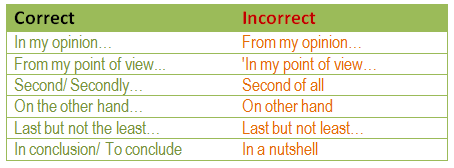
Vocabulary for the conclusion part:
In conclusion...
In summary...
To conclude...
To conclude with...
To sum up...
In general...
To summarise...
In short...
All in all...
Overall...
On the whole...
To draw the conclusion...
In a nutshell...
To elucidate...('To elucidate' means - 'make something clear' or 'to explain'.)
All things considered...
By and large...
Taking everything into consideration...
Taking everything into account...
Weighing up both sides of the argument...
(Useful Tip: Avoid using 'In a nutshell' as it is not formal. Use 'In conclusion/ to conclude' instead.)
Examples:
1) In general, even though it is preferable to study English in an English-speaking country, a reasonable level of English can be achieved in one's own country, if a student is gifted and dedicated to studying.
2) To sum up, if the population explosion continues, many more people will die of starvation in poor countries, and life in the cities, even in affluent nations, will become increasingly difficult.
3) To conclude, I recommend that the only sensible way to solve this problem is to educate young people about the dangers of drug use and to take steps to reduce the pressure of competition placed upon them.
4) In conclusion, nuclear technology certainly has positive uses but is nonetheless dangerous. However, it would have been better if it had never been used to create nuclear weapons. If life on Earth is to continue, all the nuclear nations of the world should agree to disarm as soon as possible.
N.B. The conclusion part of the IELTS Essay or IELTS Academic writing task 2 usually begins with a special concluding phrase that links it to the rest of the essay. Notice that a conditional sentence can be very effective in the conclusion. One reason for this is that it can refer to what might occur as a result of your suggestions or recommendations. Of course, you can use conditional sentences elsewhere in your essay as well. If you do use conditionals, be sure that the construction of your sentences is grammatically correct.
Also, in a short essay of approximately 250 words the conclusion can be just one or two sentences long. The conclusion should briefly sum up what you have said in your essay and does not usually contribute a new idea unless it is a minor point. However, it is a good place to make recommendations or suggestions or to give advice and offer solutions, if you are asked to do so.
